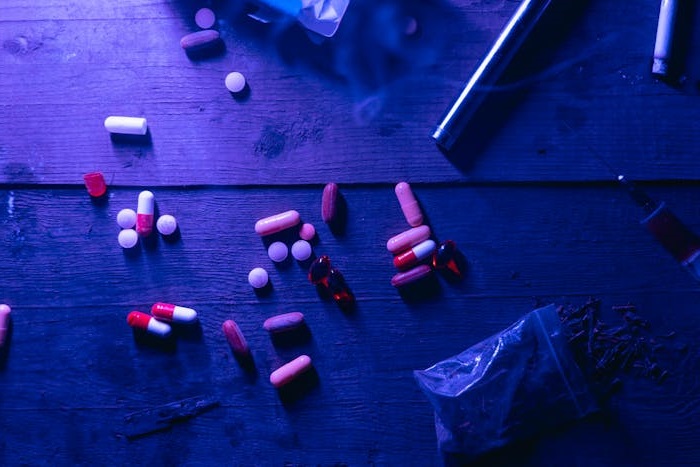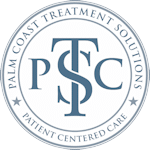Popular Post
Jump to Section
Drug addiction remains one of the major problems since it affects millions of lives annually. People find it hard to quit using drugs, even bearing in mind that they are facing severe consequences, because that is how addiction is natured. However, drugs are not all equally addictive. Others are more prone to abuse and cause a quicker physical or psychological dependence. Knowledge of which drug is the most addictive and the other ones that are listed in books as highly addictive can allow people and families to diagnose the changes before it becomes too late and seek the necessary help.
At Palm Coast Treatment Solutions, we stand by people to reclaim their lives against addiction using evidence-based drug addiction treatment. Following, we have a look at the 10 most addictive drugs, their effects and why they are so difficult to get rid of.
Understanding Drug Addiction
Drug addiction is a chronic disease of the brain that is chronic. Drug abusers tend to use drugs in a manner that they are not able to meanwhile they are aware of the negative effects. Addiction may affect relations, career, health, and the level of life quality with time.
Symptoms of addiction may include:
- Drug-seeking in a compulsive and craving manner
- Inability to control usage
- Tolerance and withdrawals
- Persistence in use despite difficulties

Here are the top 10 most addictive substances, based on their impact on the brain, withdrawal potential, and rates of dependency:
1. Heroin
Heroin is nothing less than the most addictive substance in the world. It is within the opioid group and produces a strong euphoric high that saturates the brain with dopamine. The brain also becomes very adaptive once one uses heroin, and it needs increased amounts of the substance to reach the same feelings, namely, tolerance. The result is extreme drug cravings and dependency, even the physical kind, and withdrawal pangs.
Why it’s addictive:
- Intense euphoria
- Instant response to the brain
- The severe withdrawal symptoms
2. Cocaine
Cocaine is a stimulant drug which raises the amount of dopamine in the movement- and reward-related brain circuits. It also produces the feeling of energy and strong pleasure but the effect wears off fast, prompting the user to binge. The brain eventually takes this to an extreme, and cocaine takes control of the reward system, thereby making the user continuously use despite their good intentions.
Why it’s addictive:
- Rapid cerebral high effect
- Short-term cravings
- Rates of high relapses
3. Nicotine
Nicotine is perhaps one of the most addictive substances in the world and it is very often underestimated. Nicotine which is acquired in tobacco products and e-cigarettes, changes the brain chemistry and produces a loop of addiction. A great number of drug addicts spend years overcoming nicotine and being unstructured, and relapse is a fact.
Why it’s addictive:
- Rapid in the brain
- Availability and acceptability in society
- The withdrawal symptoms consist of anxiety and irritability
4. Methamphetamine (Meth)
Meth is a very addictive stimulant that influences the central nervous system. It elevates the rate of dopamine dramatically, hence leading to longer euphoria. Nonetheless, continued consumption of meth results in high levels of physical and mental impairment as time goes by, some of which include paranoia, hallucinations and severe weight loss.
Why it’s addictive:
- Prolonged ecstasy effect
- Fervid psychological vulnerability
- Blitzing of tolerance
5. Alcohol
Alcohol, despite being legal it is one of the most addictive drugs because of its popularity and capacity to change the brain chemistry. Continuous alcohol consumption may lead to both physical and mental addiction. Alcohol withdrawal is normally hazardous and even fatal and it normally requires medical detox.
Why it’s addictive:
- Decelerates brain functions and inhibits guilt and shame feelings
- Feeds an emotional and physical addiction
- Withdrawal symptoms, such as tremors and seizures that are severe.
6. Benzodiazepines (Xanax, Valium)
Benzodiazepines are given in the case of anxiety, insomnia, and seizures. Nonetheless, these drugs are addictive whenever used other than under medical supervision. With time, people develop an addiction and might need more and more doses which lead to an overdose and death.
Why it’s addictive:
- Produces a relaxing and tranquilizing effect
- One long-term mortgage subject with the possibility of addiction. Long-term addiction is quite high
- Risky withdrawal symptoms
7. Prescription Opioids (Oxycodone, Hydrocodone)
Prescription drugs are pain relievers used when one has had an operation or injury. Although these are effective in the treatment of pain, they are very addictive and have caused a national opioid crisis. Individuals who are addicted to prescription opioids will most likely switch to heroin because of availability and affordability.
Why it’s addictive:
- Quick reliever, state of high spirits
- Tolerance and physical dependence
- Possibility of respiratory depression and overdose
8. Crack Cocaine
The smoking form of cocaine is called Crack cocaine, otherwise known as a freebase. It gives almost immediate high yet the effects last a few minutes. The pleasure is high and the crash is quick after a particular session, which is the reason the users of the drug are compelled to explore more and it is ranked as one of the most risky and addictive drugs in the streets.
Why it’s addictive:
- Right now, fierce high
- Sudden appearance of craving
- An increased possibility of addiction compared to powder cocaine
9. Ketamine
Ketamine was originally utilized as an anesthetic agent in hospitals, but is now being abused recreationally due to its euphoric and dissociative effects. Users get out of touch with reality, which is very addictive and even risky. It may result in drug dependence and addiction over time.
Why it’s addictive:
- Alters the senses, distorts the senses
- There are triggers to psychological dependence
- Frequent use impairs the memory and the health of the bladder
10. Inhalants
Inhalants include substances such as glue and paint thinner, as well as aerosol sprays. Though they are not traditionally considered drugs, they are very addictive and perilous. The inhalants give a fast high and cause damage to the brain, both short and long term.
Why it’s addictive:
- Fast-acting euphoria
- Availability and affordability
- Speech and severe damage of the nerves with frequent use
Seeking Help at Palm Coast Treatment Solutions
You, or a favorite person, can cope with any of the above-mentioned most addictive drugs, and know that help is awaiting you. Our mission at Palm Coast Treatment Solutions is to offer care that is considerate and unique in order to help individuals get out of addiction. Our drug abuse rehabilitation center has several levels of care:
- Medical detox
- Personal and group therapy
- Dual diagnosis treatment
- Relapse prevention
- Aftercare planning
Recovery is possible, and it starts with reaching out for help.

Contact us Today for Help
You do not need to wait until it is too late. When you or a loved one has a problem with drug addiction, seek help from an accountable unit. To get more information on our drug addiction treatment programs, call (386) 284-4151 and talk to an admissions counselor at Palm Coast Treatment Solutions.
Contact Us
CALL US NOW
Palm Coast Treatment Centers will iron out the details for you in a manner that will make you confident in your path to sobriety. That first simple call is your ticket to making Palm Coast Treatment Centers your solution for addiction. Get the freedom from addiction that you deserve today.
Call Us Now: (386) 284-4151Updated News
LATEST POSTS
Palm Coast Recovery Solutions makes numerous media outlets available to encourage you in your recovery process. Digital media literature is approved by a licensed professional and intended to guide you in your recovery path.

Years of experience
Our leadership team has extensive experience in dual-diagnosis treatment and is ready to help those who are struggling with substance use and mental health.

Specialists
Our staff consists of many licensed addiction and mental health treatment facilitators and other staff who are ready to share their experience and their success.

Happy patients
Palm Coast Treatment Centers has helped over 2,000 people who have struggled with substance use and mental health to find road to recovery.
Contact Us
GET IN TOUCH
Reaching out to Palm Coast Treatment Centers may be the most important call of your recovery process. A caring professional is waiting for your call to be your guide to addiction-free living.
Need Help? Contact Us
Areas and Cities We Serve SUD & Mental Health Treatments in Florida
OviedoOrlandoDelandJacksonvillePort St. LucieTampaAltamonte SpringsKissimmeeSt CloudWinter GardenWinter ParkClermontMelbourneSanfordDeltonaLake MaryMount DoraLeesburgThe VillagesUnion ParkSt. AugustineDupontPort OrangeOrmond BeachHolly HillDaytona BeachEdgewaterOak HillMaytownEldoraGenevaTitusvilleChristmasPort St. JohnPort CanaveralCocoa BeachOsteenSatellite BeachPalm BayRoselandSebastianFellsmereGiffordRockledge
 info@shc.health
info@shc.health 









